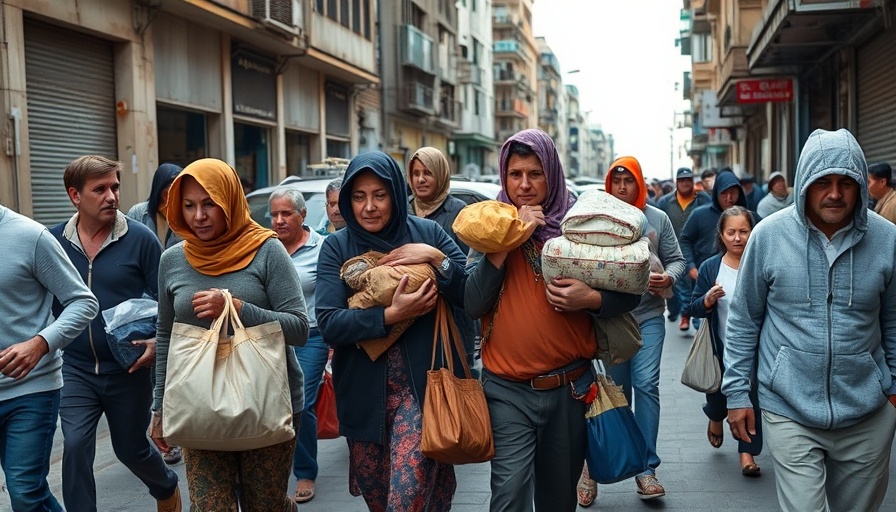
The UN's Call to Action: Preventing a Wider War in DRC
A top United Nations (UN) official has made an urgent appeal for the Security Council to take decisive action to prevent a broader regional war in the eastern Democratic Republic of Congo (DRC). This imperative stems from the escalating territorial dominance of the M23 rebel group, whose recent advances pose an existential threat to the region and its civilian population.
The M23's Continued Expansion and Its Severe Implications
Despite the international community's calls for a ceasefire, the M23, allegedly backed by Rwandan forces, has continued its aggressive territorial expansion into North and South Kivu. Following the capture of Goma and Bukavu, the situation is rapidly deteriorating, leading to devastating consequences for Congolese civilians.
UN Special Representative Bintou Keita reported overwhelming humanitarian tolls as the M23 inflates its parallel administration in captured regions, muddying the lines of governance and safety. The risks of mass atrocities are rising, with local populations facing violence and abductions. Registered displacement has now surged past 500,000 in the Kivus alone, a reflection of the chaos engulfing the area.
Regional Dynamics and International Involvement
The crisis has not only rehashed old narratives but has involved complex regional dynamics, including external support for the M23 from Rwanda. Observers are raising alarms that we may witness a resurgence of conflict reminiscent of the First and Second Congo Wars—a terrifying prospect that could entangle neighboring countries like Burundi and Uganda further.
While the East African Community (EAC) and Southern African Development Community (SADC) previously attempted to mediate solutions, the recent M23 offensives indicate a strategic pivot in their operations that outpaces any local resistance. This repeated cycle of violence and the DRC government's struggles to capitalize on regional alliances is indicative of an urgent need for reform both within the military and political spheres.
The Economic Stakes in the DRC
The DRC is immensely rich in natural resources, including coltan and cobalt, crucial for the world’s electronic and battery industries. The M23's operations are intersecting with ownership and control over these significant assets, presenting enormous implications for international investment and regional stability.
As conflict amplifies, it poses pressing questions regarding foreign investment strategies, particularly for countries looking to engage with the DRC to benefit from its mining sectors while navigating the complexities of human rights and ethical governance.
Diplomatic Initiatives: A Call for Collective Responses
The UN has outlined three key priorities for averting further catastrophe: an immediate cessation of hostilities, renewed dialogue for a political resolution, and a regional approach to addressing the underlying causes of the conflict. Such an approach requires robust international engagement and mediation, ideally steering towards a regional summit that includes multiple stakeholders from the EAC and SADC.
However, achieving meaningful dialogue hinges on the willingness of both the Congolese government and the M23 to engage sincerely—a challenge complicated by international politics and domestic tensions within the DRC.
Future Predictions: Risks of Escalation and Humanitarian Fallout
As the crisis unfolds, experts warn of the increasing likelihood of a wide-scale regional conflict that could lead to substantial humanitarian consequences. The repercussions would be grave, potentially destabilizing an already fragile Great Lakes region and affecting millions of vulnerable civilians.
With uncertain geopolitical ambitions underscoring the actions of various involved parties, the need for coordinated international pressure against escalatory actions becomes paramount. Future dialogues must focus on comprehensive solutions, integrating stability, governance, and respect for human rights.
Taking Action: A Path Forward
The implications of the ongoing DRC crisis extend beyond mere territorial disputes; they are intertwined with internal governance, regional stability, and international relations. It is crucial for involved nations and international actors to foster a collaborative environment for dialogue that prioritizes peace over aggression.
This situation demands our attention and response. Those who have a stake in DRC politics must push for reform, accountability, and sustainable economic policies that resonate with the needs of its citizens. Additionally, as a global community, we must advocate for responsible engagement with African partners and contribute to building sustainable peace.
In conclusion, the unfolding situation in the DRC underscores the need for urgent interventions to bring about stability in a region that has endured too much violence and loss. Engaging the DRC’s narratives within the broader context of African unity and cooperation will be crucial in shaping positive outcomes amid these challenges.
 Add Row
Add Row  Add
Add 




Write A Comment